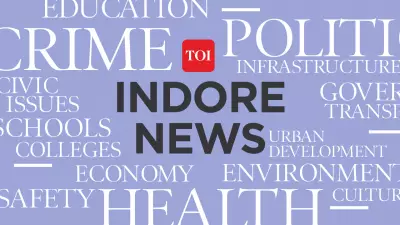
The landscape of international education is undergoing a dramatic transformation as Indian students completely rethink their approach to studying abroad. According to insights from Ms. Khushboo Taparia Bedi, Head of Career Cell at Sanskar Valley School in Bhopal, the traditional pursuit of Ivy League prestige is no longer the primary driving force behind study abroad decisions.
From Brand Names to Course Content
Five years ago, studying abroad was synonymous with chasing Ivy League institutions and global prestige. However, in 2025, students are deliberately rewriting this rulebook. The most significant shift appears in how students evaluate their options, with many now prioritizing specific courses and programs over institutional reputation alone.
Ms. Bedi explains that today's students conduct more thorough research into curriculum quality, faculty expertise, and practical learning opportunities. They're looking beyond the university brand to understand what they'll actually learn and how it will benefit their career trajectory. This represents a fundamental change from previous generations who often chose universities based primarily on global rankings and reputation.
Professor Expertise Trumps Institutional Prestige
Another notable trend involves students actively tracking professors and their research specialties rather than simply focusing on university brands. Gen Z applicants are increasingly seeking out specific faculty members whose work aligns with their academic interests and career aspirations.
This professor-centric approach allows students to find mentors who can genuinely advance their learning and research capabilities. The shift indicates a more sophisticated understanding of how academic relationships and specialized knowledge can shape their educational experience and future opportunities.
The New Trinity: Security, Proximity, and Affordability
Contemporary students demonstrate heightened awareness of practical considerations that extend beyond academic factors. Safety and security concerns have become paramount in destination selection, with students and their families carefully evaluating political stability, crime rates, and support systems for international students.
Geographical proximity to India has also emerged as a significant factor, with many students preferring destinations that allow for easier travel home and cultural adaptation. Additionally, affordability considerations now play a more substantial role in decision-making, reflecting growing financial pragmatism among Indian families.
As the new admission season begins, these evolving preferences signal a permanent shift in how Indian students approach global education. The study abroad dream has evolved from chasing prestige to seeking meaningful educational experiences that align with personal, professional, and practical considerations.





